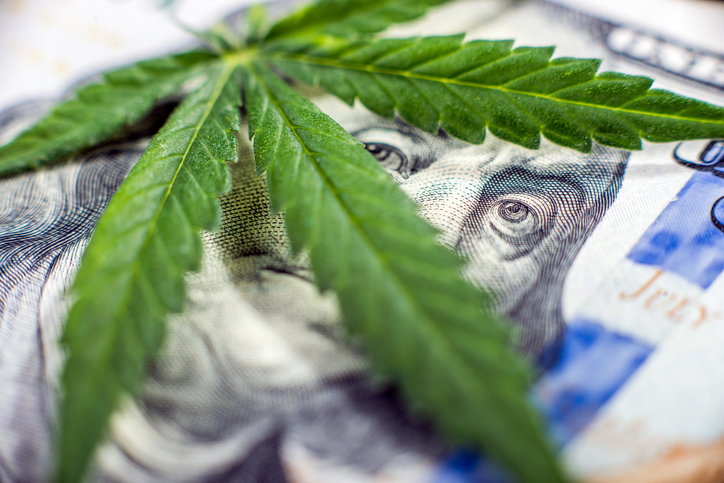The marijuana industry has experienced a nationwide boom in the last five years. In 2013, the marijuana industry realized approximately $1.5 billion in sales. In 2017, the industry realized approximately $9 billion in sales. Those numbers will, likely, only continue to rise as more and more states continue to legalize recreational marijuana.
In spite of this rash of legalization, marijuana is still treated as an illegal substance at the federal level. As a result, pursuant to Internal Revenue Code (I.R.C.) 280E, any deductions associated with the operation of a marijuana dispensary would be disallowed. This creates a tax trap for many business owners.
Although a number of states have legalized the sale of marijuana, the respective state legalization does not change the application of I.R.C. 280E. Even though many of those marijuana dispensaries believe they are operating within the law, federal law prohibits businesses involved in illegal activities from deducting their ordinary and necessary business expenses.
The United States Tax Court (Court) recently revisited this issue in Gibson v. Comm’r of Internal Revenue, T.C. Memo 2018-83 (2018). The Gibson Court acknowledged that its previous holding in CHAMP v. Comm’r of Internal Revenue, 128 T.C. No. 14 (2007), which denied business expenses for a medical marijuana dispensary, also applied to marijuana dispensaries that were selling marijuana to the general public.
Interestingly, the Court did allow CHAMP to deduct expenses related to its counseling and other care giving services. This holding represented a rejection of the IRS’s argument that CHAMP was a single business activity and, therefore, all of CHAMP’s business expenses would have to be denied pursuant to I.R.C. 280E.
In Gibson, a husband and wife operated a marijuana dispensary on their Schedule C for the 2010 and 2011 tax years. In those years, the taxpayers sold a mix of marijuana and non-marijuana accessories. The Gibson Court distinguished it from CHAMP in that it did not allow the taxpayer any expenses relating to the sale of the non-marijuana accessories. This was not because the Court accepted the IRS’s argument regarding it being a single business activity, but instead, because the taxpayer did not maintain good books and records supporting the expenses relating to the sale of non-marijuana accessories.
The Gibson Court did confirm the IRS’s allowance of some Cost of Goods Sold (COGS) for the tax years at issue. These COGS expenses were allowed because, pursuant to I.R.C. 63, COGS are a reduction to income and not a deduction. Therefore, they are not prohibited by I.R.C. 280E. Though, the allowance for COGS still requires good books and records, pursuant to Treasury Regulation 1.471-2(e). Because the taxpayers did not have good books and records, no additional COGS were allowed.
Regarding the penalties that the IRS proposed to assess, the Court found that the taxpayers lacked reasonable cause and did not act in good faith. As a result, the penalties the IRS proposed to assess against the taxpayers were sustained.
Ultimately, one of the taxpayers’ biggest mistakes was not maintaining adequate books and records for the business. Had they done so, particularly as it relates to the sale of non-marijuana accessories, they likely would have been able to secure a number of additional deductions from the Court. So, even though the federal prohibition on marijuana would have resulted in the disallowance of a number of business expenses, a marijuana dispensary with good books and records could maximize the available deductions.

